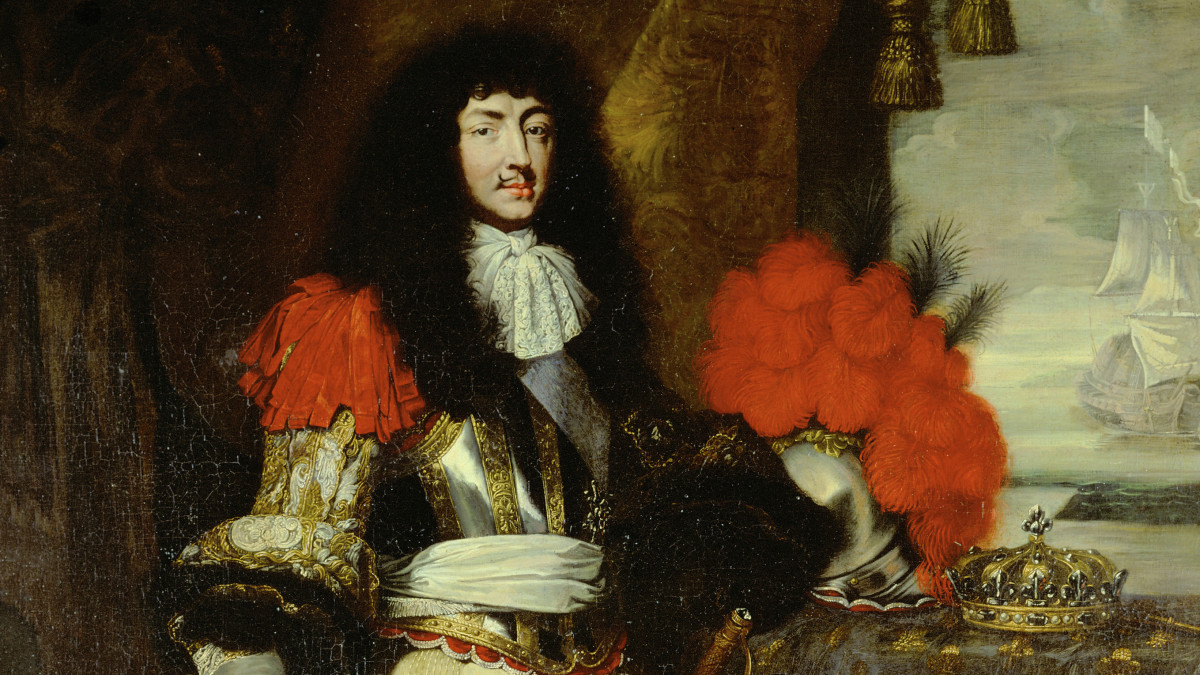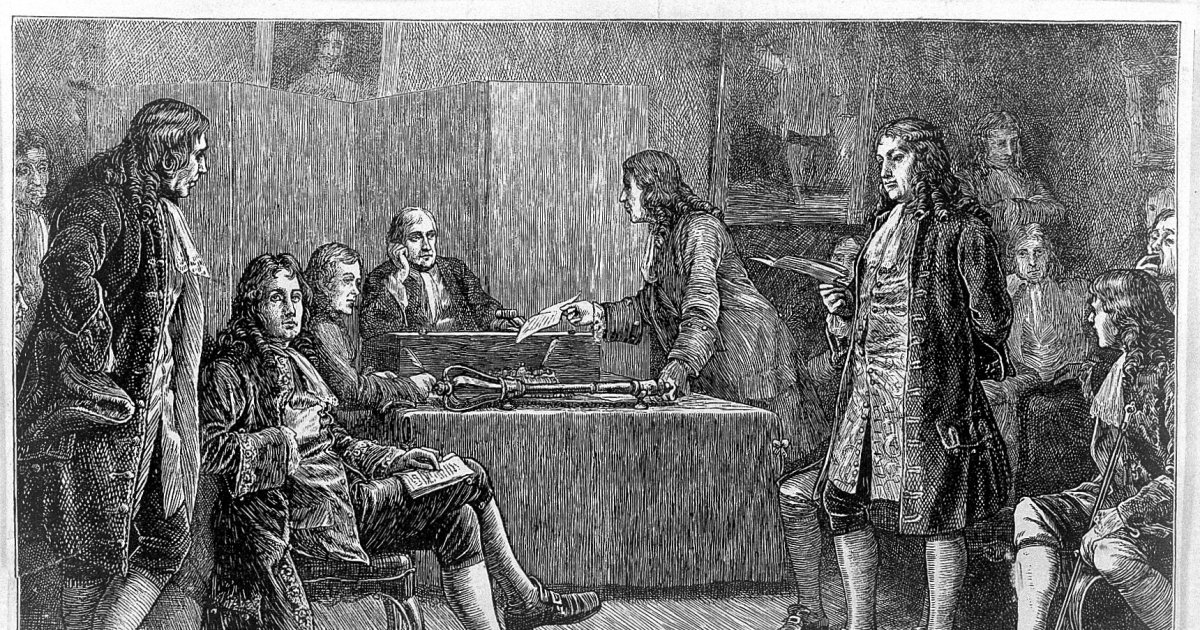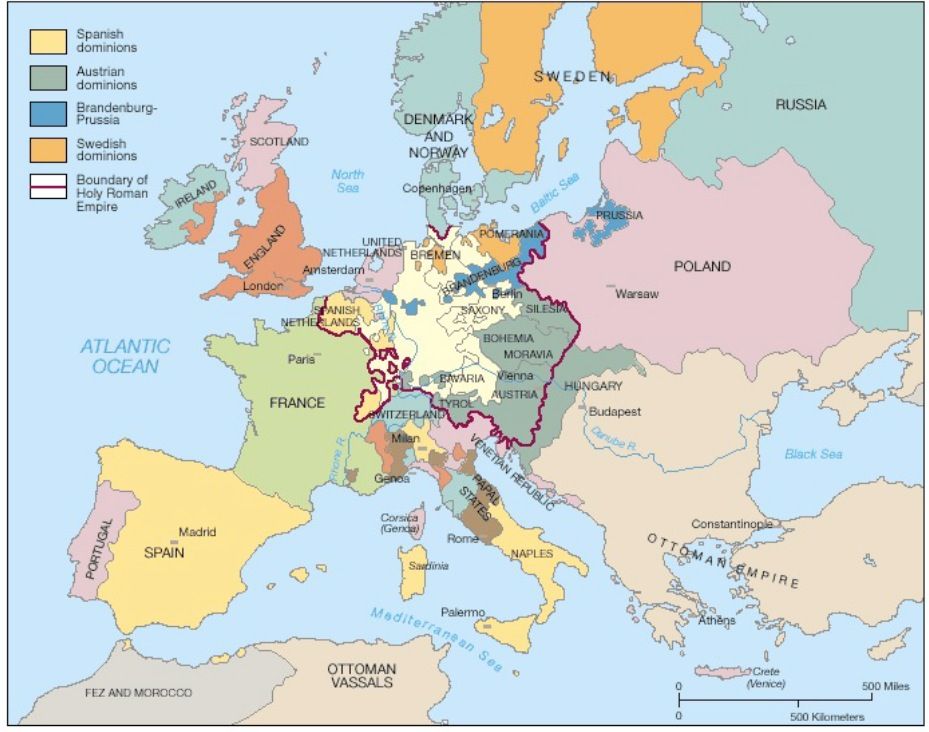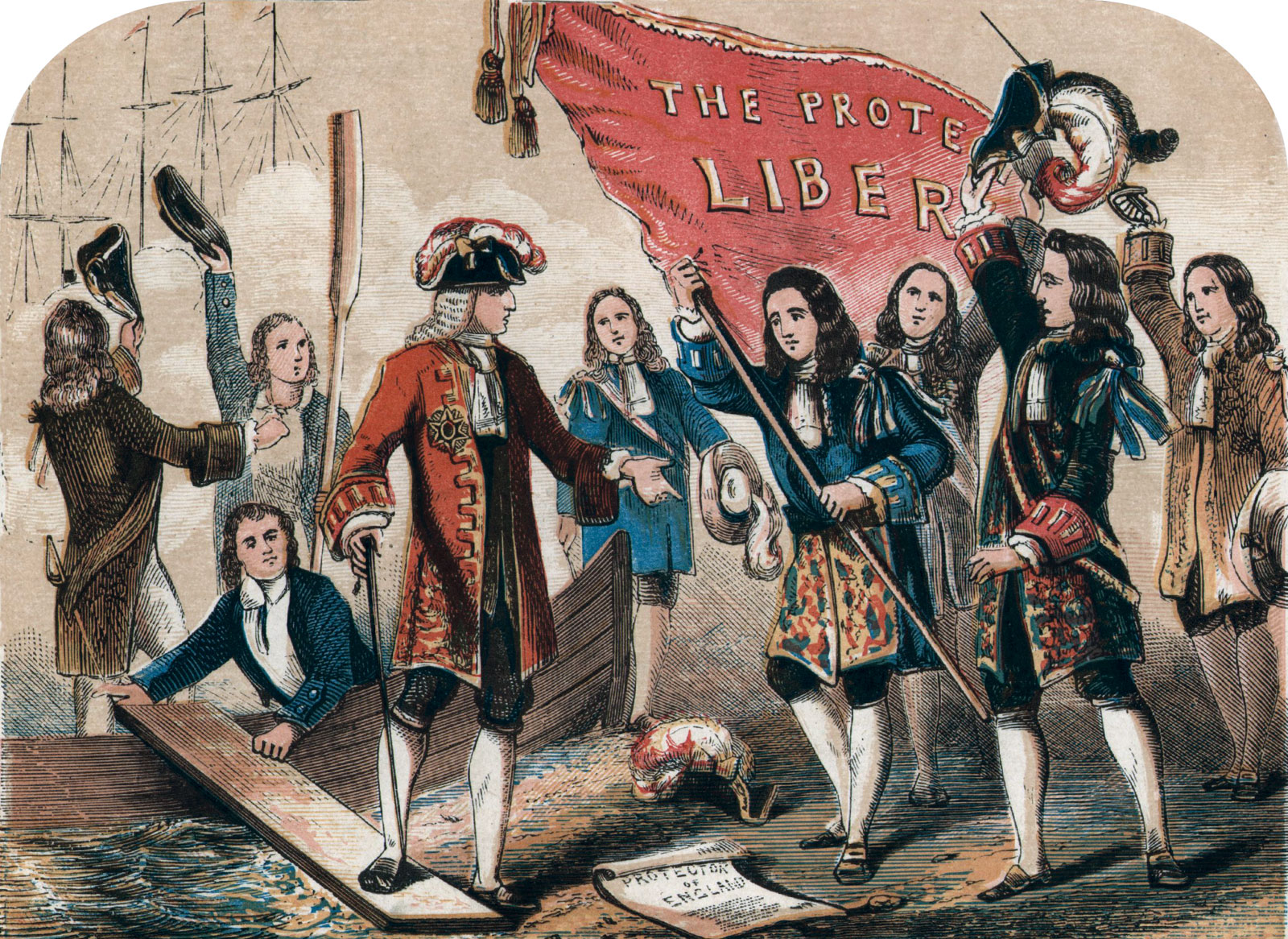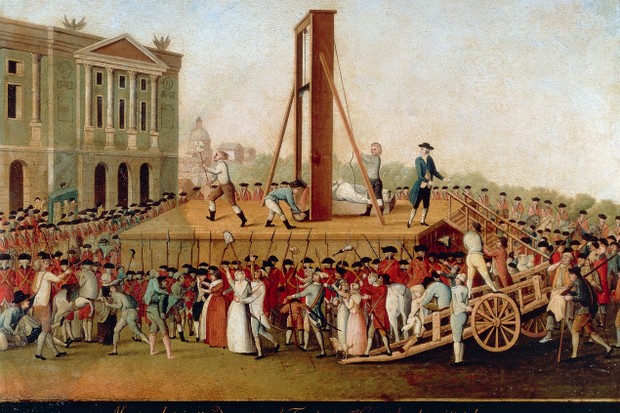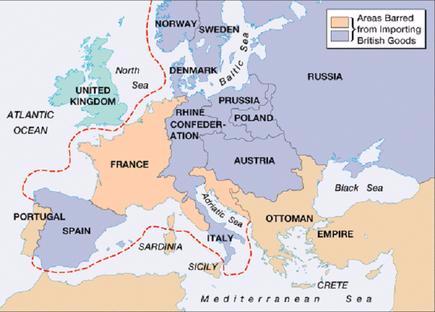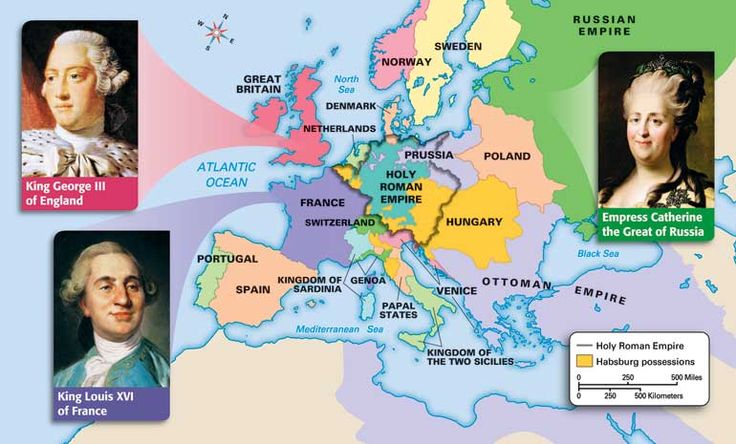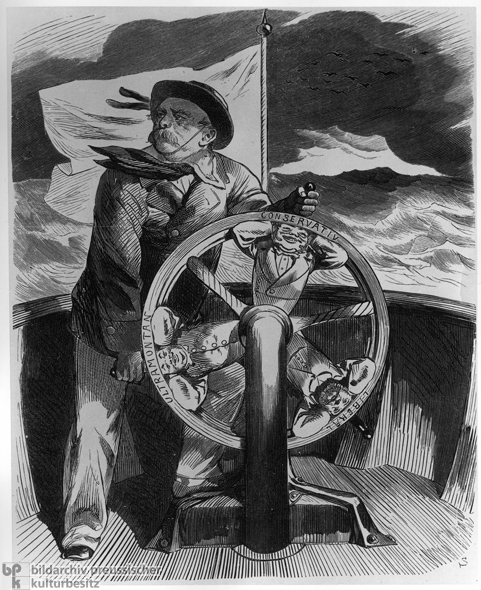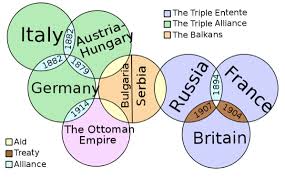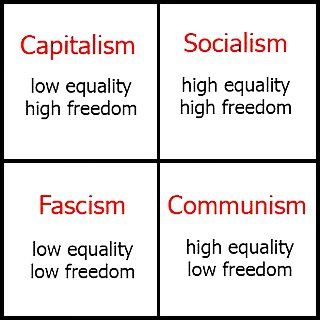The one thing you need to know about this theme:
States and Other Institutions of Power have attempted to organize Europeans, but are often challenged. Traditional power in Europe often comes from absolute monarchies or the Catholic Church. Due to the logical thinking and rationality among people introduced by the Scientific Revolution and the Enlightenment, Europeans began to demand reforms in favor of natural rights and logical reasoning. |
European states and nations developed governmental and civil institutions from 1450 to the present to organize society and consolidate political power, with a variety of social, cultural, and economic effects.
Which institutions of power have existed in Europe, and how have institutions changed over time?
In what ways and why have European governments moved toward or reacted against representative and democratic principles and practices?
How did civil institutions develop apart from governments, and what impact have they had upon European states?
How and why did changes in warfare affect diplomacy, the European state system, and the balance of power?
How did the concept of a balance of power emerge, develop, and eventually become institutionalized?
| Absolutism | Alliances | Bureaucracy | Civil Institution |
| Communism | Democratic Ideas | Empire | Enlightenment |
| Fascism | Feudalism | Monarch | Nation State |
| Parliament | Politique | Republic | Socialism |
| Totalitarianism | Trade Unions | Welfare State |
|
Absolutist Monarchies and Feudal Challenges
The most traditional form of government in Europe is an absolutist monarchy👑. This institution of singular power was born out of the Age of Empires mostly concerning the Middle East and Asia, and the feudal history of Europe. Monarchs manage a nation of land, create and enforce laws📜, conduct a military💣, control usage of a nation’s treasury💰 created by taxation, and make just about every choice a nation faces with only a group of advisors.
Image Courtesy of History
The power of monarchs were often unofficially checked by alliances of nobles within their nation who held the loyalty of the population, at times had their own military forces, and controlled the food supply. A well known example of absolutism is King Louis XIV of France, or the Sun King🌞. Louis XIV challenged the Fronde, an alliance of noble families in France looking to usurp the power of the monarch and his chief minister, Cardinal Mazarin. Louis XIV eventually defeated them by challenging their constitutional basis and exiling many nobles. While the first written constitution of France won’t be completed until 1791📜, the bureaucracy of King Louis XIV made it impossible to enact any type of reform he didn’t agree with.
The Catholic Church and the Reformation
Another institution of singular power during this time is the Catholic Church⛪. The Catholic Church had a monopoly on the beliefs of people which centered around obedience and submission. Church doctrine often dictated how people justified their belief in faith, natural phenomena, medicine, and other sciences.
Challenges to Church authority come in many forms. Martin Luther, John Calvin, and other religious reformers seek changes from the Catholic Church to focus on faith and salvation over hierarchy, money, and other forms of corruption. The break in the Catholic Church due to the Protestant Reformation leaves them still the foremost religious power in Europe, but severely lacking in political power, as citizens have now entrusted their loyalty to monarchs, promising to offer religious pluralism.
Other Challenges: Scientific Revolution🔬
While absolutist monarchies and the religious control of the Catholic Church both represent traditional forms of power in Europe, both endure significant changes during this time. Along with the Protestant Reformation challenging the authority of the Church, the Scientific Revolution forces Europeans to seek proof through sense-based information to justify their beliefs. While this is a step in the right direction for logical reasoning and understanding, it is a step away from faith.
What if people began questioning❔ every belief they had traditionally held and demanded proof to justify it? That would be an impossible task for the Catholic Church, so they chose to shut down all scientific thought outside of religious teaching and research. Founded in the midst of the Inquisition, the Royal Society of London (founded in 1660) formed as a civil institution to bring together scientific minds looking to study classical information and build where it lacked.
Image Courtesy of Science Museum
Westphalian Sovereignty
The final challenge to these traditional forms of power is the Peace of Westphalia, signed in 1648📜. This treaty, at the end of the Thirty Years War, culminates in a permanent split of Christianity in Western Europe and the establishment of sovereignty within each nation. The split in Christianity wasn’t completely new (Great Schism, 1054), but the Catholic Church ceding religious authority to other denominations of Christianty was. And sovereignty wasn’t a new idea, but remaining neutral in another country’s feud was. Before Westphalian Sovereignty, it wasn’t uncommon for a nation to interfere in another nation’s domestic issues. The perfect example is France intervening in the religious conflicts of the Thirty Years War to diminish the power of the Habsburg Monarchy in the Holy Roman Empire.
Image Courtesy of Karen Whitney
The Peace of Westphalia, 1648, recognized the new boundaries of European states that included an independent Portugal and United Netherlands. It also recognized the growth of the Ottoman Empire into the Balkans
English Civil War and Glorious Revolution
More challenges to single institutions of power come in the form of revolutions and civil wars. The first of the European nations to establish a control over the singular power of the monarch was England in 1215 with the Magna Carta📜. The basic idea was to submit the king to the same laws as other citizens. Part of this control came in the form of a parliament, established by the Magna Carta. Since 1215, the English monarch was subject to some regulation by nobles and others of high stature in England.
The English Civil War between the English Parliament and the Stuart monarchs of Scotland challenged these ideas and forced England to choose between a sole absolutist monarch and a constitutional monarchy where parliament and a monarch coexist and cooperate. The Glorious Revolution ends the English Civil War and removes Scottish monarchs from the throne of England peacefully. James II abdicated in favor of his daughter, Mary II, and her husband, William, and together they sign the English Bill of Rights📜, granting natural rights to their citizens such as freedom of speech, religion, and assembly💭.
Image Courtesy of Britannica
French Revolution
Inspired by the American Revolution that ended in 1783, the French Revolution💣 (1789-1799) sought to implement Enlightenment ideas of equality before the law🤔, freedom of religion, freedom of speech, and more to the French government under King Louis XVI, another absolutist monarch. Molded after the English and American revolutions for government reform toward a more democratic form of government, the French Revolution fails miserably. They are successful in removing their monarch, but are incapable of fashioning a republican style of government that they want.
Due to the lack of education of many in the Third Estate, and the overpowering radical group of the Jacobins, the Third Estate is unable to maintain control of their first French Republic, founded in 1792. The Reign of Terror😦 is the height of this failure as thousands of Frenchmen are guillotined for treason or other crimes against the state, including the leader of the Revolution, Maximilien Robespierre. This failure results in a turn away from Enlightened democratic ideas from the French people, as they fear what can happen when there is no stable government. The overall result is a return to normalcy, another single institution power- Napoleon Bonaparte as Emperor of France.
Image Courtesy of HistoryExtra
Napoleonic Wars
Napoleon took advantage of the French Revolution. He knew that people were stressed about their uncertain future and would accept stability regardless of what it looked like. Napoleon established that stability in France, but looked to destabilize other European nations so he could control them. He used a foreign policy called the Continental System to force other countries to depend on France or ally with them, essentially blockading Great Britain. Westphalian Sovereignty sought to establish a balance of power within the sovereign states of Europe, stating that war and diplomacy would both be normal means of maintaining stability between nations.
However, that war and diplomacy was to be between two countries to reestablish peace, not orchestrated by one nation in an effort to take sovereignty from others. The Napoleonic Wars continued until 1815, when Napoleon was finally exiled for a second time to St. Helena, Africa.
The Continental System - Image Courtesy of Sutori
Revolutions and Liberalism
With nations focusing on the Concert of Europe, an agreement to maintain peace☮ at all costs to prolong the values of conservatives. Conservatives wanted to preserve their traditional governments- strong, centralized monarchies. But in the wake of the Enlightenment, a more educated population, empowered by recent revolutions and feeling tired of their current status, do not want a return to normalcy as much as they want reform. More people seek a liberal form of government which allows for democratic ideals, natural rights, voting abilities, and other legal reforms.
With a realization that there is little unity within countries, people begin to identify as a nation state rather than with their home country. People of similar histories, religions, languages and more identify together. Revolutions of 1830 and 1848 see many independence movements, liberal movements to oppose conservative governments, and demands for Enlightened reforms. Many monarchs in the previous period and this one will adopt a form of Enlightened Despotism👑 to try and pacify these liberal reforms, but many do not go far enough to pacify their populations.
Enlightened Despotism - Image Courtesy of Age of Revolution
Unification Movements
The Unification movements of Italy and Germany are also results of nationalist sentiments within leaders and among their people. In Italy, Prime Minister Count Cavour, a politique, organizes a unification movement that utilizes the ideas of many to bring together the Italian provinces. He and his king, Victor Emmanuel II, unify Italy under the strong province of Piedmont-Sardinia.
In this process, they allow a radical liberal, Giusseppe Garibaldi, to use a military force that drives out Spanish leadership from the southern provinces, while simultaneously driving fear into southern Italians concerning liberal ideas. Cavour united Italy under a conservative government while using ideas of nationalism and liberalism to bring people together.
In Germany, Chancellor Otto von Bismarck, a neo-conservative, wanted to strengthen Prussia by uniting German territories together. He orchestrated three wars to remove foreign influences in Germany, again violating Westphalian sovereignty to do so. Bismarck was also a politique- allowing a situation to play out, weighing options, and focusing on what he deems best for his nation over his personal beliefs. Politiques are well known for doing what is necessary, no matter the cost.
Image Courtesy of German History
Bismarck also established the first welfare system of Europe in Germany to bring together liberal, conservative, and socialist ideas under a still-authoritarian, centralized government (as seen in the image above). Socialism became popular after the Industrial Revolution🏭 showed the ugly, ruthless side of capitalism and how access to a wage doesn’t necessarily mean the ability to take care of yourself. Socialists formed trade unions that wanted better working conditions, insurance for health, and retirement, and the ability to have a working wage and hours. Both unification movements are in opposition to democratic ideas, but they are more open to listening to the populace to avoid revolution.
Alliances before WWI
Image Courtesy of connect.bcp
The greatest threat to single institutions of power, other than reform movements and revolutions, is an alliance system. While alliances are created to help a nation in need, it also supersedes any neutrality from conflict. Alliances created before 1900 did not come into play until the early 20th century. The Bosnian Crisis of 1908 culminated in the assassination of Austrian Archduke Franz Ferdinand, setting off a system of alliances that would pull most major European countries into a major continental conflict. The Concert of Europe that sought to maintain a balance of power had failed due to pent up conflict between nations trying to avoid war, and by a system of alliances that forced nations to violate the sovereignty of others.
Economic Downturn
After WWI, the Treaty of Versailles was signed to meet the agendas of major European nations except for Germany. Germany was assigned guilt for the war, forcing them to pay reparations and creating hyperinflation in their country in the interwar period of the 1920’s. This period of instability in Germany and other European countries caused by an extreme economic downturn was the rise of authoritarian governments in the form of Socialists, Fascists, and Communists. While socialism and communism don’t necessarily lend to authoritarian leaders, they did during this period of hyperinflation and the Great Depression.
Image Courtesy of Pinterest
Leaders like Joseph Stalin, Adolf Hitler, Benito Mussolini, and Francisco Franco used different forms of government that inundated their populations with extremely nationalistic propaganda that gave false promises to problems that were almost impossible to fix without the help of other nations. Agricultural deficits in Russia, hyperinflation in Germany, unemployment in Italy, and food shortages in Spain led to people trusting anyone who promised to fix these issues and many more in their respective nations. The opposition to this were moderate socialist nations or capitalist nations, who worked together using trade to fulfill their needs and fix issues.
United Nations
After WWII, the United Nations was established to replace the failed League of Nations. The idea of balanced power in Europe seemed impossible after back to back world wars wreaked havoc on all European nations as well as the United States, the Soviet Union, Asia, Africa, and many other countries. The former League of Nations failed due to a lack of military enforcement and money because of the devastation of WWI. However, the United Nations held the military and monetary backing of major countries separated over different continents.
The United Nations institutionalized a balance of power in Europe and all over the world. Nations involved must agree to exist within the perimeters of the United Nations, participate in ending future global conflicts through diplomacy, and essentially, the UN created a global alliance where all nations work together for a common good. However, this also means that conflicts and atrocities are ignored at times in the name of sovereignty and avoiding conflict. This was the case with the Cold War, where the United States and the Soviet Union threw money at nations to form unofficial alliances based on ideologies and take control over local conflicts, while also not engaging in direct conflict with each other.
Image Courtesy of Wikipedia
The end of the Cold War saw a refocus on the global balance of power. With the end of communism, countries became dependent on trade from one another for resources they couldn’t produce themselves. Many nations depend on humanitarian aid from wealthier countries for food and medical needs. However, this dependency has also created working relationships between countries of different ideologies and histories. The institution of the United Nations has created a world where the balance of power is the norm, not the exception.
“To Versailles like bragging lads We brought with us all our guns We had to show, though we were but women, A courage that no one can reproach us for. Now we won’t have to go so far When we want to see our King. We love him with a love without equal, Since he’s come to live in our Capital.” Song of the poissardes (Paris market women), October 1789
Question: The events referred to in the song led most directly to which of the following?
(A) The formalization of a constitutional monarchy in France
(B) The creation of a republican government in France
(C) The installation of Napoleon as Emperor of the French
(D) The restoration of the Bourbon monarchy
“Twentieth-century Fascism is a byproduct of disintegrating liberal democracy. Loss of hope in the possibilities of existing order and society, disgust with their corruption and ineffectiveness, above all the society’s evident loss of confidence in itself, all these produce or spur a revolutionary mood in which the only issue lies in catastrophic action—but always with a strong social tinge: ‘I place my only hope in the continuation of socialist progress through fascisms,’ writes Drieu [a French Fascist author of the 1930s]. And the editor of the French Fascist publication, the Insurgent, Jean-Pierre Maxence, would call for insurgents of all parties to join ‘the front of united youth, for bread, for grandeur and for liberty, in immense disgust with capitalist democracy.’ From this angle, as from many others, Fascism looks very much like the Jacobinism of our time.” Eugen Weber, historian, Varieties of Fascism, 1964
Question: Weber’s argument linking Fascism and Jacobinism implies that he was influenced by which of the following?
(A) Marxist materialist analysis of social change and historical development
(B) Social Darwinist belief in the importance of struggle in historical progress
(C) Positivist emphasis on the role of technology in shaping human affairs
(D) Post-modernist subjectivist critiques of the ethos of western society
“The welfare state, in short, was born of a cross-party twentieth-century consensus… Moreover, and her the memory of war once again played an important role, the twentieth-century ‘socialist’ welfare states were constructed not as an advance guard of egalitarian revolution but to provide a barrier against the return of the past: against economic depression and its polarizing, violent political outcome in the desperate politics of Fascism and Communism alike. The welfare states were thus prophylactic [preventative]... Thanks to a half century of prosperity and safety, we in the Westhave forgotten the political and social traumas of mass insecurity. And thus we have forgotten why we have inherited those welfare states and what brought them about.”
Tony Judt, British historian, Reappraisals: Reflections on the Forgotten Twentieth Century, 2008
Provide ONE piece of evidence that would support Judt’s argument regarding the creation of welfare states.
Provide ONE piece of evidence that would support Judt’s characterization of political and economic conditions in the period 1960 to 2000.
Briefly analyze ONE way in which Judt’s argument is a response to the political and intellectual trends in the late-twentieth-century Europe.
Analyze major factors that affected the changing balance of power among European states in the period 1848-1914.
